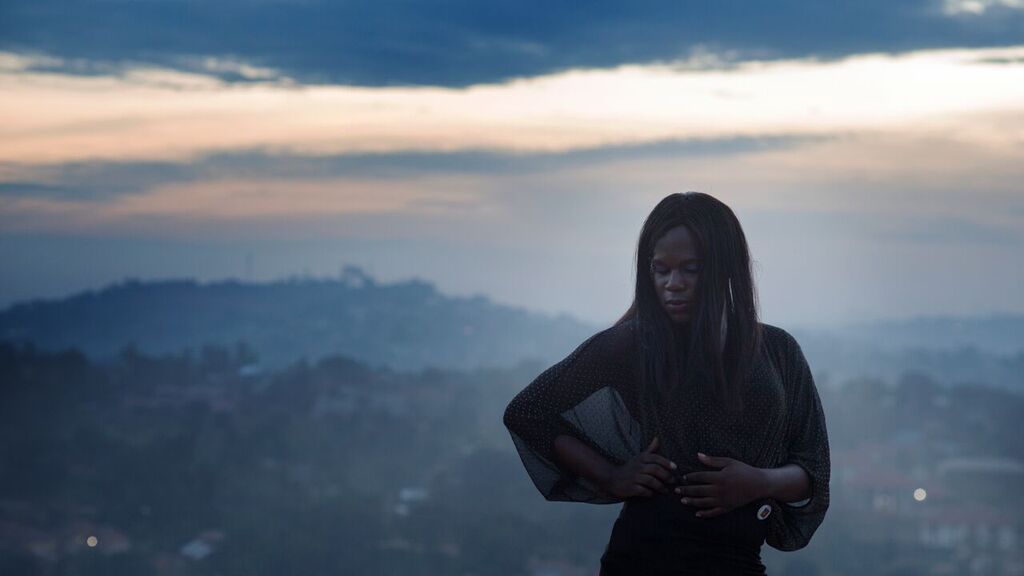UHAI EASHRI Continues to Advocate for LGBT Programs on the Continent Through Screening 'The Pearl of Africa' in NYC
UHAI EASHRI screens 'Pearl of Africa,' a story of one trans woman's struggle to live and an organization fighting for her livelihood, in New York.
Cleopatra Kambugu is light, in it’s fullest sense. She warms those around her, the camera, the viewers, and illuminates the room and screen to which she emerges in often cracking jokes and laughing.
Kambugu, a Ugandan transgender woman, is the center of ThePearlof Africa— a documentary film capturing Kambugu as she falls in love, flees Uganda after the passage of the country’s Anti-Homosexuality Act in 2014, mends relations with her family and undergoes surgery to fully transition.
Capturing the transphobia that plagues the continent, the film as titled illuminates the pearls of Africa, the LGBT individuals who must fight for their dignity and humanity in the places they call home. In its entirety, the film plays on the feelings of her laughter, on the beauty of being human, being in love and being happy amidst a world that dehumanizes, hates and pulsates on anger and sadness.
The opening is a reminder to the religious showing Galatians 3:28:
There is neither Jew nor Gentile, neither slave nor free, nor is there male and female, for you are all one in Christ Jesus.
The film, screened in New York, was hosted by nonprofit UHAI EASHRI as a means to fundraise and garner recognition for the organization. Uhai means ‘life’ in Kiswahili and ‘EASHRI’ stands for the East African Sexual Health and Right Initiative.
“I’ve always wondered where hate comes from,” Mutisya Leonard, UHAI’s support assistant to the office of the executive director, later muses after the film is screened. “It is a mouthful,” he laughs. But his role along with his colleagues is a big one.
UHAI EASHRI is an indigenous activist organization that funds LGBT programs on the continent. The organization provides resources towards the struggle for justice and equality for sexual and gender minorities.
It’s aim is simple—to provide the freedom and ability for activist groups to attain justice—or as Mutisya explains, to “express yourself as you see fit without the threat of violence and with dignity.”
The importance of UHAI lies in its indigeneity. “The people who have lived the struggle actually know the solutions to the struggle,” Mutisya explains. In other words, those who disburse funds, who fundraise, who research and scout and fight for justice are the very same individuals who battle the system.
UHAI “gives activists back their agency, activists don’t have to subscribe to the agenda of the funder. They get to do the work they want to do,” explains Ashley Artis, UHAI’s director of development in the United States.
Kambugu is one of UHAI’s leading organizers and her story is one of strength and perseverance as much as it is of activism, changemaking and revolution. It is affirmation for Kambugu, but also for those around her, of the power and capabilities to which we possess.
“Having gone through my own coming out experience in that year and discovering UHAI I was immediately like what can I do, how can I help and jumped in with both feet...It is an honor that a lot of people don’t have—to be surrounded and work with individuals like [Cleo],” Ashley explains.
For Mutisya, who traveled to the event from Nairobi, it was his first time watching the film portraying the story of his dear colleague.
“The reason I never wanted to watch it is because Cleo is a very personal friend of mine,” he tells me.
“I worked for her for two and half years of the time, this film took four and half years to make; and I watched her go through the difficulty of putting her life out there for public scrutiny. How difficult that is and how brave she’s been through it all. It’s beautiful there’s a story but it’s a whole different experience if that’s the person that sits right opposite you from the office.”
The Pearl of Africa, therein shows that humanity prevails in different forms. That some must work harder than others, some must forsake their dignity, some must fight, some must cry amidst the laughter to love, to be, and to live.
